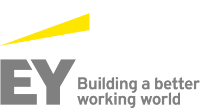Please note: all quotes from Internal Communication Professionals that were shared with me below via LinkedIn are their own thoughts and not in anyway indicative of their employer.
There are lots of things to consider when planning and implementing change communications. Change can be complex, challenging and tough on employees as explained in the first part of this article trilogy: 'What is Change Communication and what’s the No.1 reason why organisations fail at it?'.
However, as explained in many research publications there are core components that need to considered as part of every change communications plan and should be actioned! Every year we attend and partner the 'Driving Change Conference' as part of our list of numerous internal communication conferences that use our technology for live Q&A and polling. Through the digital Q&A, it's always interesting to hear what unique challenges companies face in their change programs and to hear from Change Communication Professionals. I am looking forward to hearing from the speaker lineup of Global Change & Comms Directors from the likes of Unilever, HSBC, ASDA, Google, Sky, John Lewis, Deutsche Bank and Dublin Airport to name a few...
Recently, I asked internal communication professionals in my LinkedIn network to share their thoughts of what they thought was the 'most important factors to change communications'. I was overwhelmed with the quantity of responses and the great advice shared, so I thought I would combined all the quotes and break them down into categories in this article and in part 3 'Change comms: honesty is the best policy'. For all of you that contributed via LinkedIn messages and groups, thank you!
Make comms meaningful and purposeful!
 Ryan Fewsdale, Head of Internal Comunications of Trustpilot commented on my post saying:
Ryan Fewsdale, Head of Internal Comunications of Trustpilot commented on my post saying:
“This is over-simplifying somewhat - and a number of the change theory fans will disagree - but don’t fill the void with comms that don’t say anything. Change is not crisis comms; you don’t need a holding statement out ASAP. An empty ‘watch this space’ message is disconcerting for people. If you feel the need to rush out something to acknowledge the change before you have something meaningful to share, you’re doing it wrong. Is that the most important thing? Probably not. Is it something that I’ve seen, time and time again, make life more difficult for whoever’s driving the change? 100%. Be honest, be open, be human. Teasing isn’t proactive - it’s completely counterproductive.”
Danielle Starling, Internal Communications Officer for a UK University followed up on a separate post:
“I agree with the comments about honesty and I think that links with the notion of being open and transparent. If jobs are at risk then we need to be really mindful of how that actually impacts people, the kinds of worries they have and striking a really fine balance between taking the time to make sure that information is correct but that it is also timely. I've seen so many times where staff have filled the silence and that's so toxic and unhelpful. There's nothing wrong with saying we don't have any further information for you and taking that as an opportunity to voice your commitment to communicating in a timely way.”
Be authentic, human and make it sociable!

Rhia Mitchell, Director of Change and Communications at Warner Music Group
“For me it needs to be: timely, meaningful, authentic and consistent. Timely - don’t put off the communications. You can start to tell the story of the journey you, as a company, are on as soon as you can. Not at the point change starts. No one likes surprises in the workplace. Meaningful - it needs to be relevant to the people who work for the company. No point just talking about the benefits will bring to the company. What about individuals. Authentic - and ideally leader led. But if difficult change is coming, don’t just dress it up in disguise. People see straight through that. Consistent - have the overarching reason and message and stick with it (‘we are making this change because we are on a journey to....’ ) And above all else-remember to treat people like humans.”
 Chloe Gibb, Communications and Engagement Officer at Sheffield University
Chloe Gibb, Communications and Engagement Officer at Sheffield University
“The main thing is to socialise change early. Creating lots of opportunity for face-to-face comms (drop ins, information sessions, focus groups) and listening and responding to concerns. Planning is absolutely key!”

 Jenni Field, Director of Redefining Communications & Co-founder of IC Crowd
Jenni Field, Director of Redefining Communications & Co-founder of IC Crowd
“Helping leaders understand people. I asked the question a while ago about what skills are missing when it comes to change, and the response was the human element. Once you understand the neuroscience behind it all it’s easy to advise leaders about what to do and why - to me this is most important because we often get caught up the business change and forget the people.”
Priya Bates, President of Inner Strength Communication
“Proactively reducing anxiety. A lack of communication in general is uncomfortable in any relationship. A lack of communication when going through change is disastrous. It creates fear and distrust and can cripple an organization that depends on employees to keep the lights on to signal stability to customers and investors during disruption... I always tell leaders that the story employees make up without proactive communication is 10x worse that the real story you have to tell.”
 Chase Maszle, Optum Communications & Media at UnitedHealth Group
Chase Maszle, Optum Communications & Media at UnitedHealth Group
“Some orgs are safer for change than others. But in all cases, powering your people with specific business objectives gives everyone the opportunity to align with updated goals and targets. I’d avoid delaying your plan. Feel it out as you go, keep your executives out front and visible, ask them if they’re comfortable to do frequent office rounds and definitely hold a town hall. Follow through and impact are great themes to focus on”.
Paul Wolfe, Communications Consultant and Former Internal Comms/Engagement Manager for Coca-Cola, Servier, Oracle and Co-operative Bank
“I would say empathy is important when driving change. Understanding the impact on employees and addressing concerns as you go.”
 Masz Razak, Internal Comms Specialist at Flex
Masz Razak, Internal Comms Specialist at Flex
“Change is tough for people. However if you communicate some tough business decisions with empathy (and some heart) , you get understanding and buy in. Deliver the news personally. Explain the why and allow questions. Town hall is recommended. And deliver it from the horse’s mouth to the internal folks before going external. No one likes to know from other sources first and find out from their own company later.”
Make the change process inclusive and interactive
Nikki Burslam, Director of the Culture Club
“Invite people to be part of the change (as much as possible) and don’t impose it on them. Find ways to source ideas, test, ask opinions, host Q&As, be part of shaping what the future looks like. 2. Regular, consistent and honest communication. Be proactive don’t wait for people to ask you questions. Equip your line managers and influencers to help you do it. 3. People trust ‘people like them’ more than any other person, so a network of influencers (trusted people in your business) can help you communicate effectively and maintain/ build trust. 4. Do not use the words ‘change’, or ‘transformation’.”
 Liz Clover, Strategist at Home Bristol
Liz Clover, Strategist at Home Bristol
“Lots of people and organisations find change comms really challenging - especially when everything seems to be changing all of the time and there is so much noise out there At the heart of our approach is always the people we are communicating with. What do they currently think, feel and do - and how do we want this to be different? What journey do we need to take them on and how can we get the messages across authentically and in a way that resonates. Being clear on who you are communicating with and the outcomes you want is really key. Other key thing is to make sure that the people involved have a chance to shape the future if possible. Involving them in shaping change always gets highest levels of buy-in."

Andrea Greenhous, President of Vision2Voice Communications
“Remember that communications include listening and giving your employees a voice. Involving people in the change as much as possible increases buy-in. Equip people with the information they need to master new skills or change behaviour. Think beyond traditional training to find innovative ways to support people through the change. Leaders are key - work closely with them.”
Explain the rationale and provide consistent messaging
 Jo Harvey, Global Communications and Engagement Manager at Ernst & Young
Jo Harvey, Global Communications and Engagement Manager at Ernst & Young
“Tell people what you know for sure, what you're trying to figure out and what is still undecided.”

Emily Green, Internal Communications Manager at Twinkl Educational Publishing
“Explaining why you're implementing change, building trust and rapport with your audience and allowing feedback loops are all super important to me when communicating change.”

Carly Murray, Internal Communications Director at The Surgery Design & Digital
“Stick to the same consistent story of change, the consistency can give people reassurance during change and don't be afraid to circle back round on your plan, repetition will be required for messages to be fully understood.”

Verity Cash, Director of Alphabet Communications Consultancy
“Just because you’ve heard the message a hundred times, doesn’t mean the employees have. Remember it’s ok to repeat repeat repeat!”
There we have it. Meaningful, consistent comms that explain the rationale is key. Ensure the comms are authentic and repeat the key messages several times. Include employees in the change process and discuss it on a personal and human level to get buy-in. Another significant factor that was mentioned a lot in my LinkedIn comments was "being honest and transparent in all communications", but I thought that deserved an article in itself, so please feel free to carry on to read what internal comms professionals (from the likes of Global Internal Comms at Apple, Internal Comms Manager for Medical Protection Society and Communications Consultant for Nuclear Decommissioning Authority had to say in "Change Comms: Honesty is the best policy".





